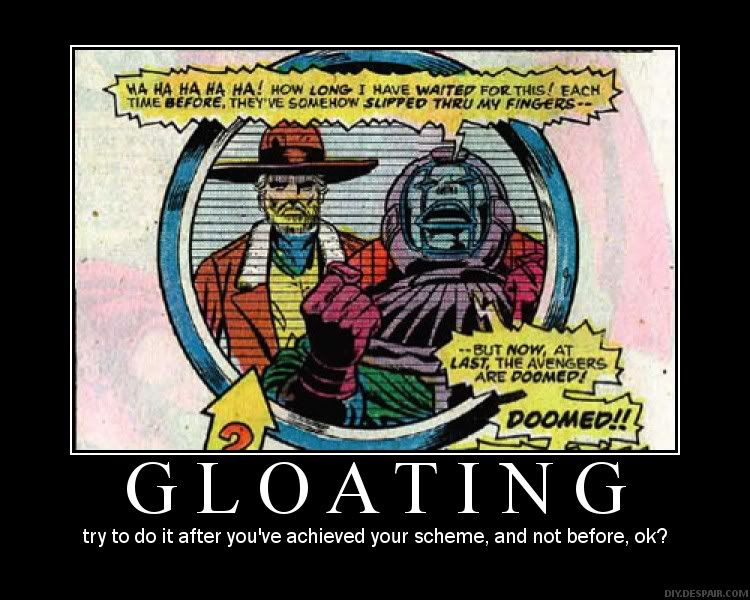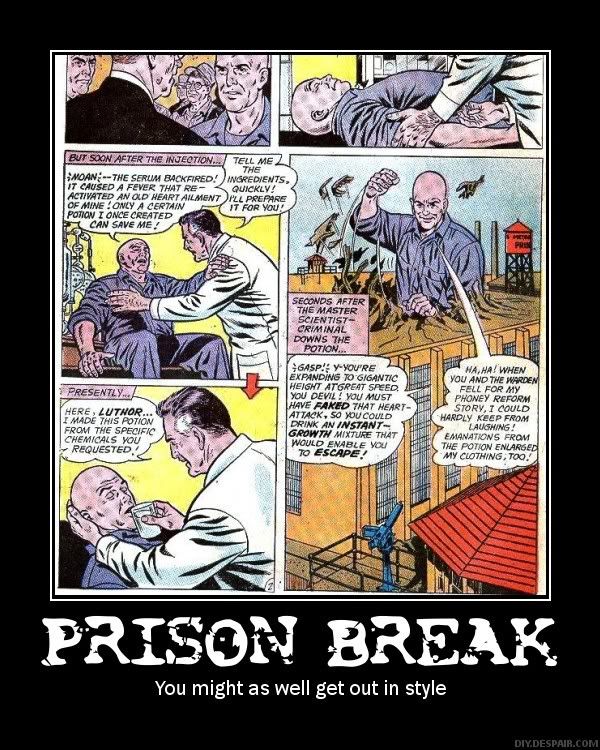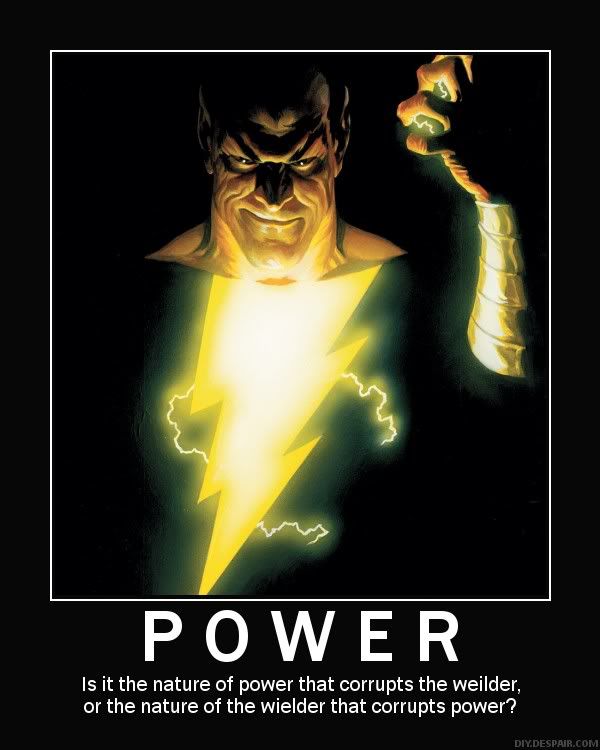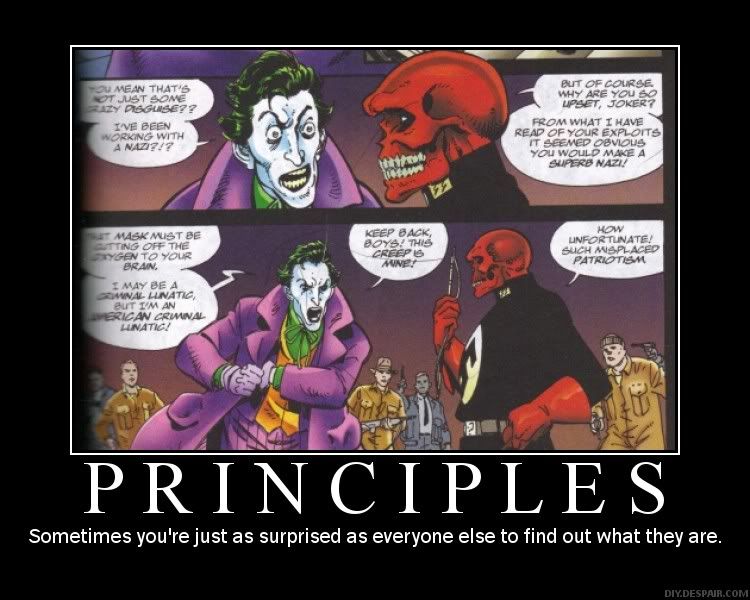
So, here's an important question: Do you think it's important for a villain to be relatable or sympathetic in a superhero story? If so, how much?

Now, I think the answer tends to vary on the story and the character itself: I don't want to find myself sympathetic to say, the Red Skull in a story because at the end of the day, he's a frickin' Nazi. I mean, end of story. I don't think it's a good idea to portray him as even remotely likable or sympathetic.
By the same token, I don't think I can actually get the motivation of someone like Joker, and I'm probably not supposed to, at least most of the time. With some villains, it's better to just think of them as pure evil because it makes it that much more satisfying when they get their heads beat in by the hero. Sounds simple enough, right?

At the same time, I can understand the desire to feed some complexity and nuance into a story. Making Kang sympathetic in Avengers Forever helps to give him depth. It actually elevates not only him and his lunatic schemes, but also the Avengers. By casting Kang in the role of the unstoppable conqueror, a futuristic Alexander, it helps elevate the Avengers to the level of a force of nature, the one thing that for all his power, Kang cannot conquer. Similarly, although I don't see Magneto as a hero, making his cause understandable adds nuance to his schemes and his fight with Xavier, making their rivalry as much about ideology as much as, you know, people hitting each other.

The problem, I think, is when you try to make a character never meant to be sympathetic into one. And I think that's a thing that has happened too frequently these past few years in comics as noir sensibilities, which work best with a sense of moral ambiguity, have muddied the waters of hero and villain.
What do you think?

2 comments:
I think that you can sometimes make a fundamentally unsympathetic villain into a sympathetic one--but at that point, you really have a different character.
I had the luxury of playing for sympathy with a supervillain in my current novel--he falls in love with one of the heroes and ends up giving his life to save the good guys from the real Big Bad. But I designed him from the start to have that vulnerable side to his personality, and when teary-eyed readers yelled at me for making him so sympathetic that they actually wept when a villain died, I could reasonably say that his death was the natural fulfillment of his character.
In contrast, if you try to make the Joker warm and fuzzy, I'd argue you're not writing the Joker anymore, and you'd be better served to just write a new character, marketing be damned.
Short version: I think it's okay to give your villains hidden depths, as long as they don't contradict the broad strokes of what's already been reliably established about those villains.
But that's me.
Wow, good question. I think in some cases it has worked. You mentioned Magneto and he is probably the best example. More recently Black Adam was given an expanded back story by Geoff Johns and it was used to good effect both in JSA and 52 (not so sure about afterward, though). Kang? I think Busiek did a good enough job, especially when dealing with a time traveler you could be dealing with different Kangs from different eras. The Kang who first fought the Avengers was much younger than the one they faced off when they fought him and his son, an old man reaching the point where he (thinks at the time) will ultimately become Immortus.
It is an excellent way to give characters a new lease on life. Can you provide any examples of characters getting similar treatment and having it fail? I can't think of any at the moment, but I don't buy nearly as many comics as I used to.
Post a Comment